Translations are hard work—some details, nuances, and philological quirks can get lost in translation that only a real language expert would notice. And even though computer-based translation programs like the one being run by Google have been a lifesaver, they’re far from perfect.
Some people on Twitter, like Dora Vargha, have been calling out Google Translate for being ‘sexist’ because it assigns genders to professions and activities when translating gender-neutral languages. Scroll down to have a look and let us know what you think, dear Pandas.
But before we dive in, a small heads-up. There might be some misconceptions about how the Google Neural Machine Translation system works: its system uses an artificial neural network that’s capable of deep learning. It goes through millions of examples and ‘learns’ how to translate. In short: the ‘bias’ wasn’t programmed in; rather, the system relies on existing translations. What’s more, Google recently announced its Rewriter program that uses post-editing to address gender bias.
Some Twitter users have been pointing out that Google Translate may be ‘sexist’ in the way that it deals with gender-neutral languages
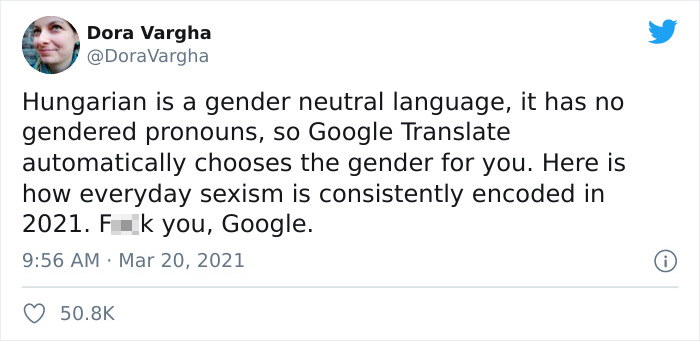
Image credits: DoraVargha
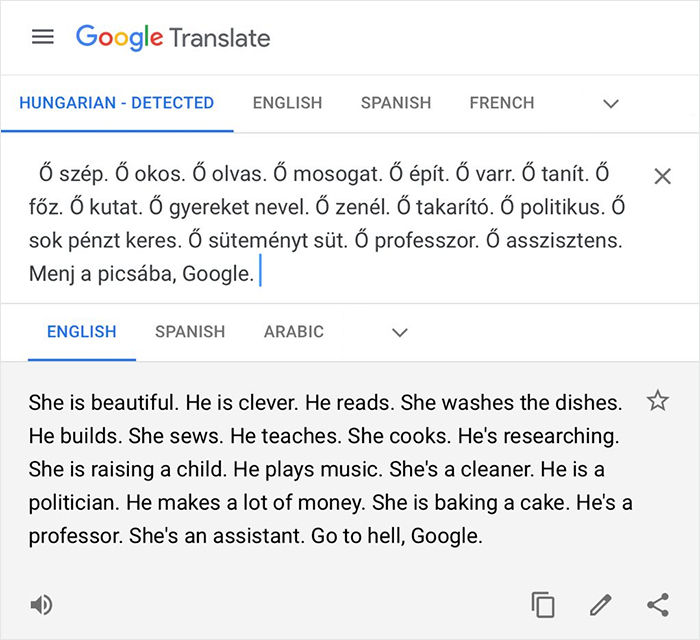
Image credits: DoraVargha
Someone else posted another example of this
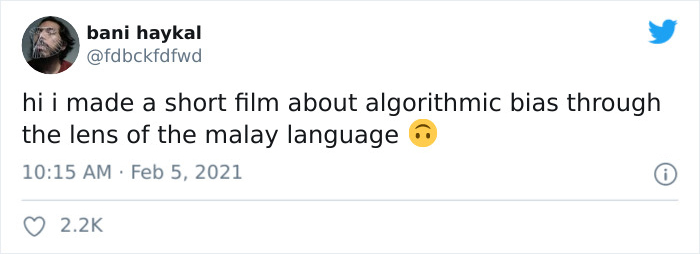
Image credits: fdbckfdfwd
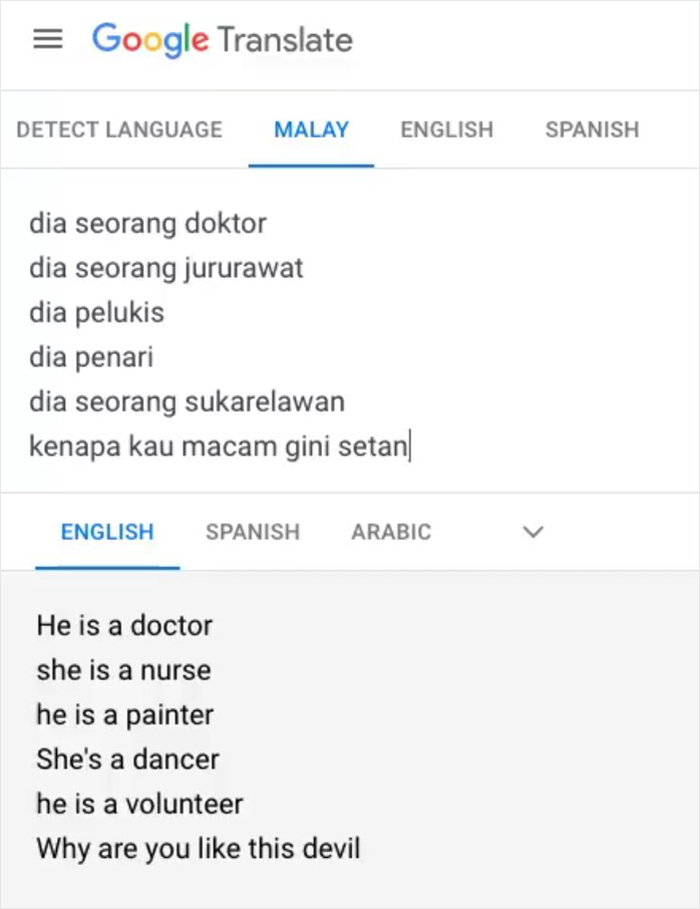
Image credits: fdbckfdfwd
Others have been experimenting with Google Translate to check whether this is true
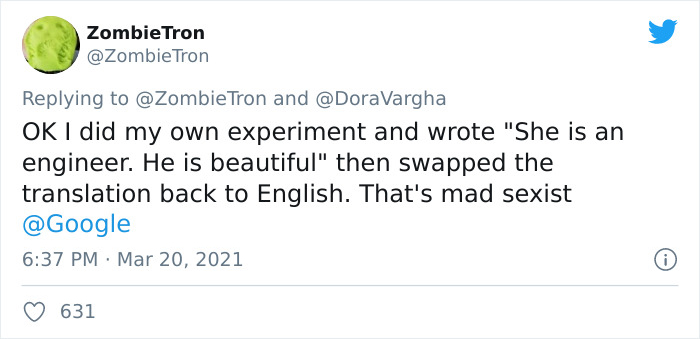
Image credits: ZombieTron
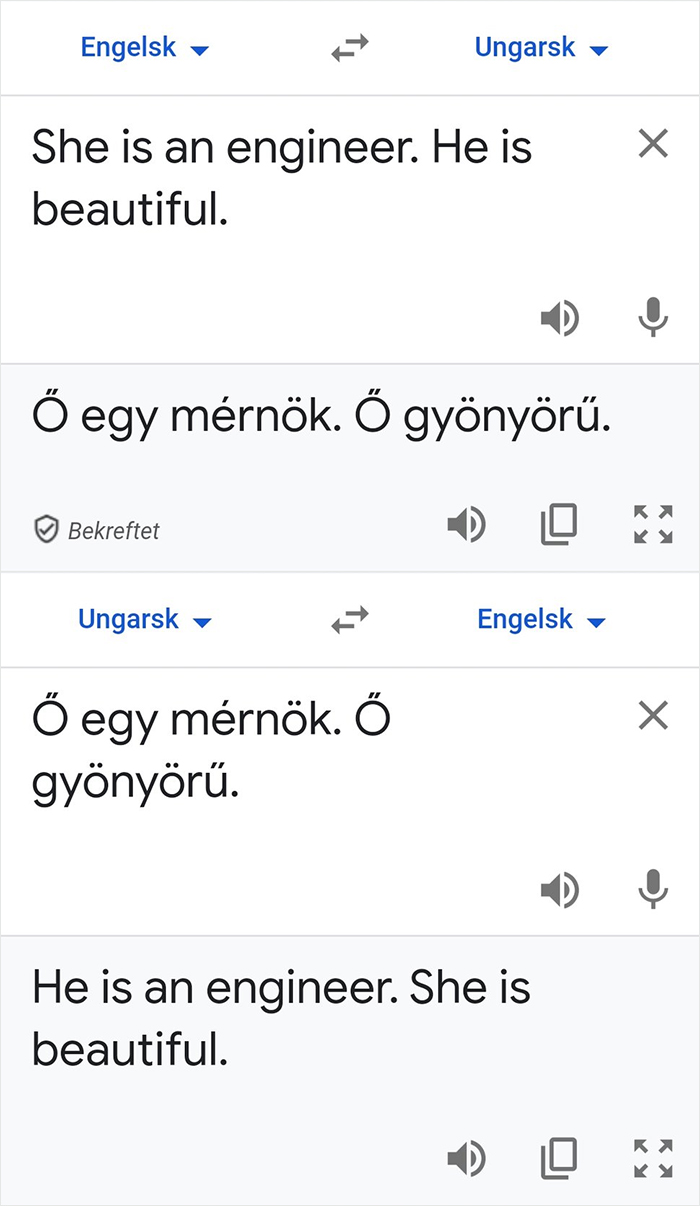
Image credits: ZombieTron
Plenty of languages appear to have the same translation issues that the Twitter users pointed out
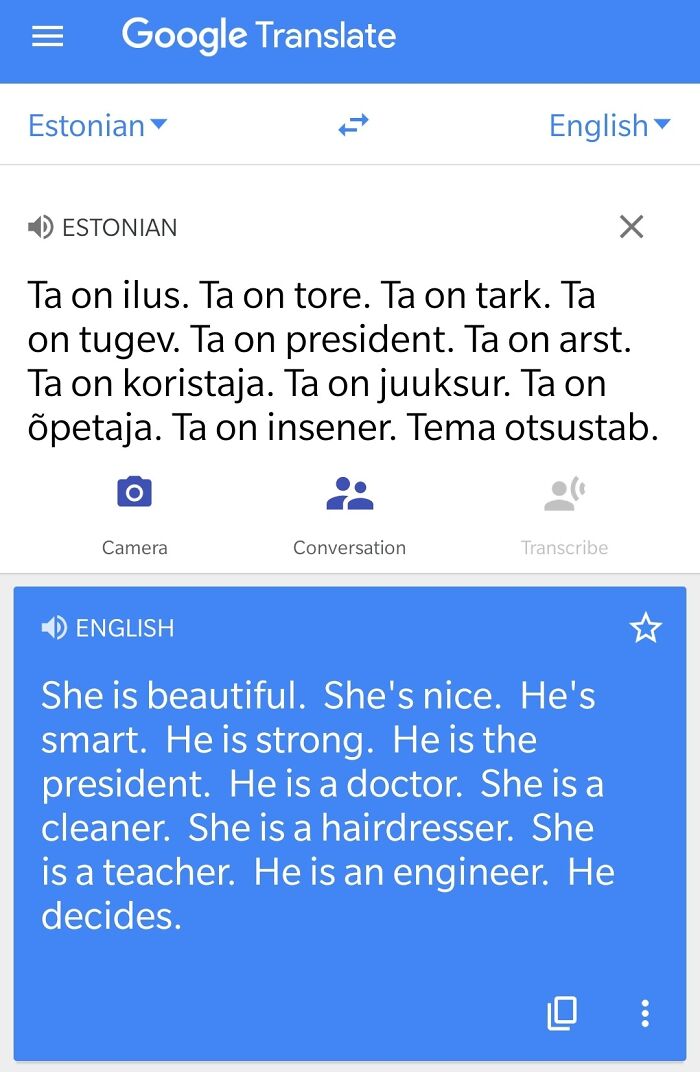
Image credits: kaiju_kirju

Image credits: lauraolin

Image credits: lauraolin
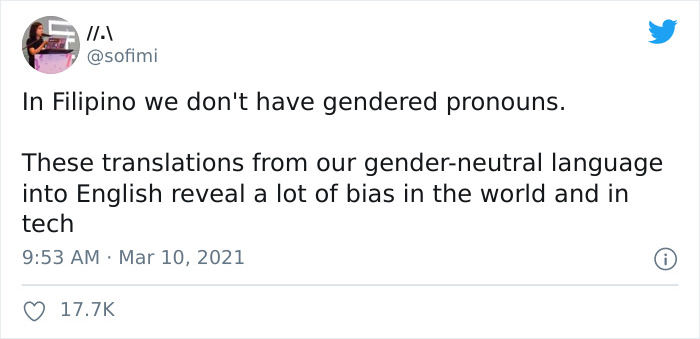
Image credits: sofimi
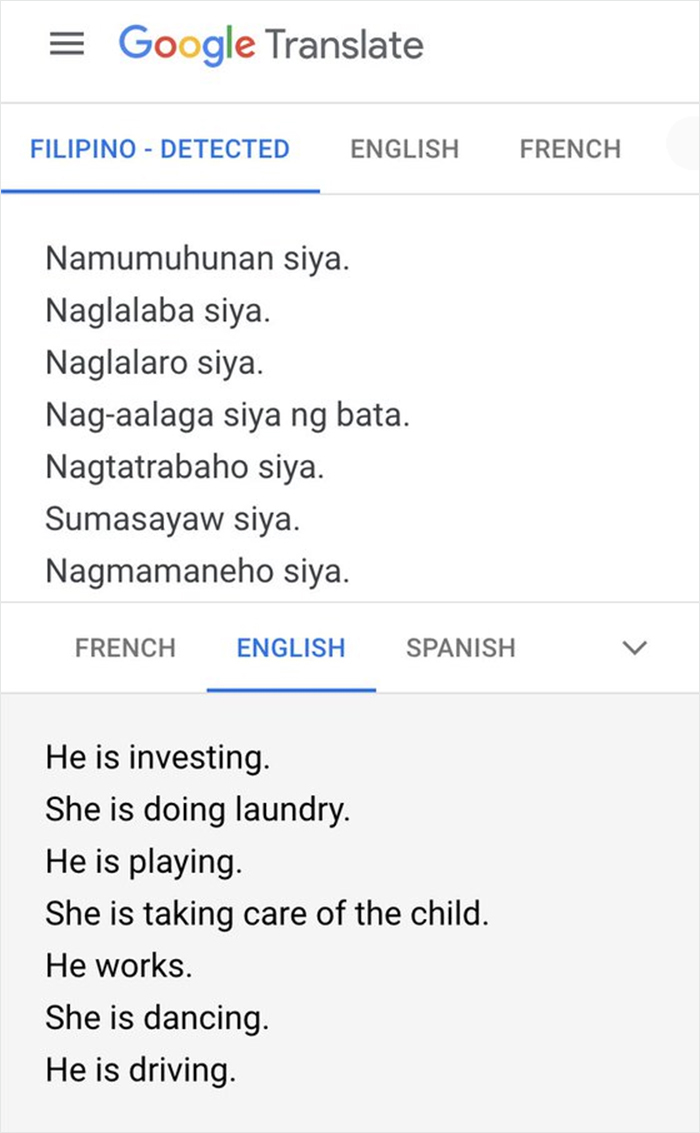
Image credits: sofimi
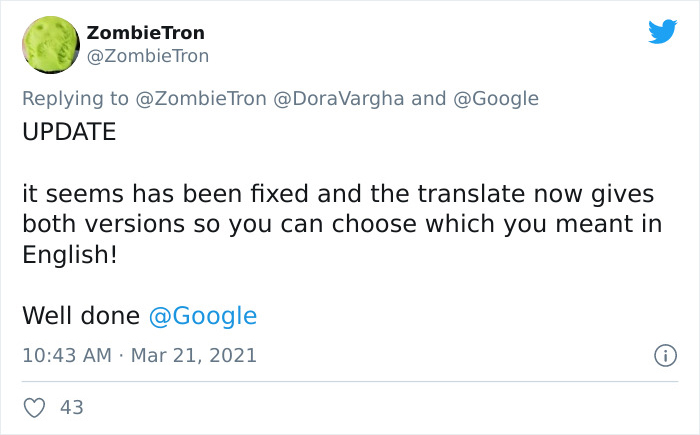
Image credits: ZombieTron
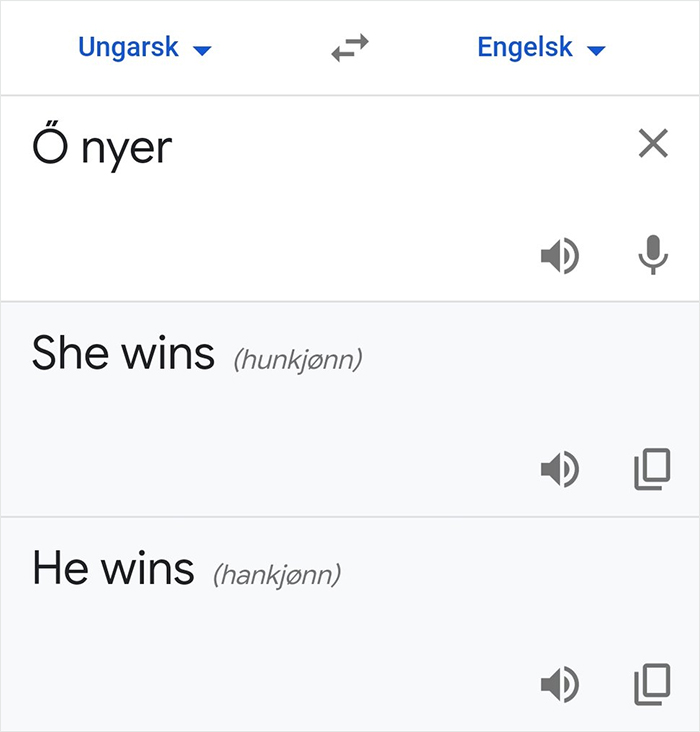
Image credits: ZombieTron

Image credits: SaimDI
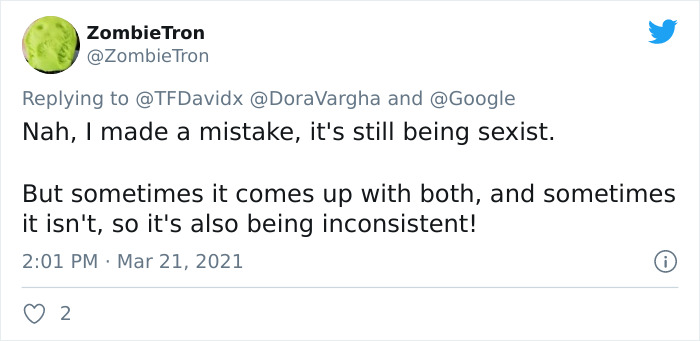
Image credits: ZombieTron
Some internet users believe that Google isn’t as neutral as it should be
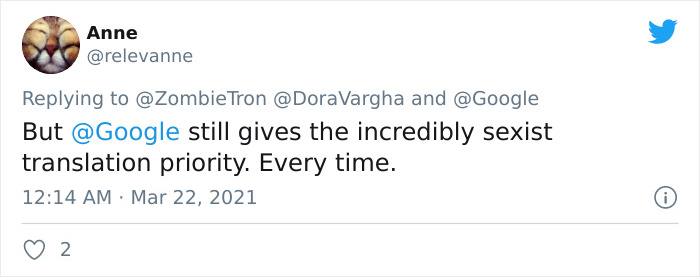
Image credits: relevanne
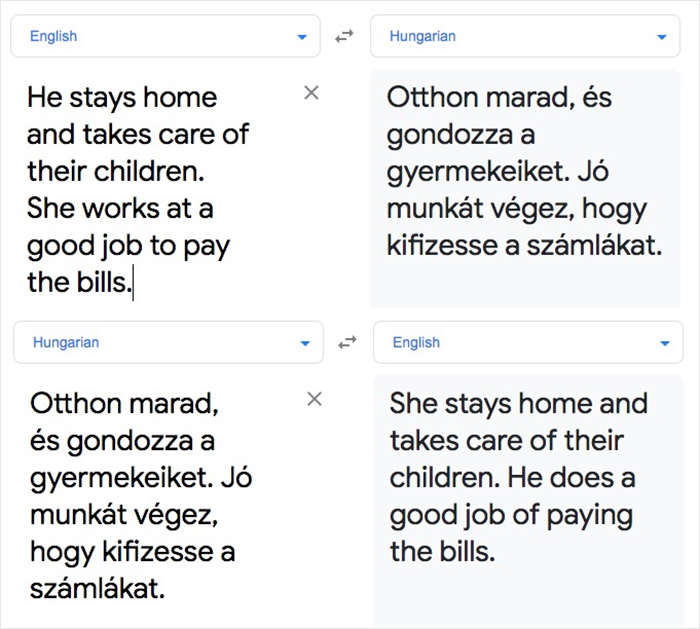
Image credits: relevanne

Image credits: uffishthot
What’s more, Google Translate looks at the broader context to find out which translation is the most relevant. The algorithm works like a mirror that adapts to show us, in its opinion, the most accurate depiction of what we asked for, based on its experience. Or, in other words, it’s a reflection and a compilation of how people all around the world would translate things.
While Google Translate could use the gender-neutral ‘they’ instead of ‘he’ or ‘she,’ this would actually cause a lot of potential confusion just to ensure that the system is being polite. Though ‘they’ can be used as singular, it’s also plural and has very different connotations. For anyone working with Google Translate, this would be a nightmare on a practical level because cases exist in some languages, meaning that the plural use of ‘they’ would change the entire sentence.
Meanwhile, using the singular ‘it’ wouldn’t work either. It might be gender-neutral but it’s also dehumanizing and might even cause more offense. Let’s not forget that even though it’s a program doing the translations, language is a passionate, innate part of the human experience: making mistakes is part of the learning process and we should embrace that. If Google Translate were a student, we ought to be encouraging it to do better and to learn from its mistakes instead of trying to get it canceled for being ‘sexist.’
The issue that some people have with Google Translate could potentially be solved by providing all possible gendered versions of translated sentences so that the user could pick what’s right for them. Or we could walk down the path of randomization and have the system assign random genders to sentences rather than drawing from its millions and millions of real-world examples. It’s either that or changing how the entire world’s translators work so that Google’s algorithm takes these new examples into its learning process.
While some Twitter users were adamant to stomp out sexism wherever they found it, a few others asked whether ranting about Google Translate was the wisest approach, instead of acting against more pressing gender-based discrimination issues.
However, others pointed out that the situation is much more nuanced
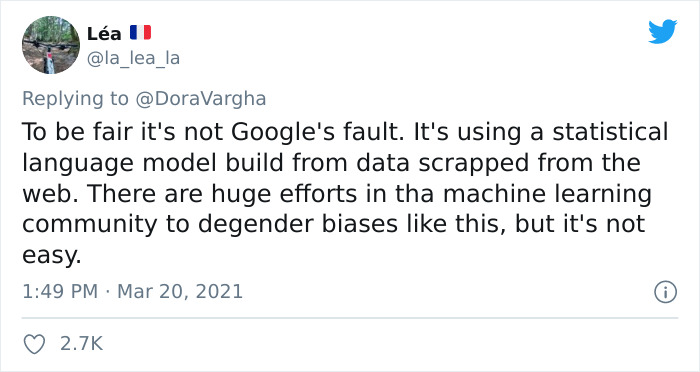
Image credits: la_lea_la
There were people on both sides of the fence in this debate
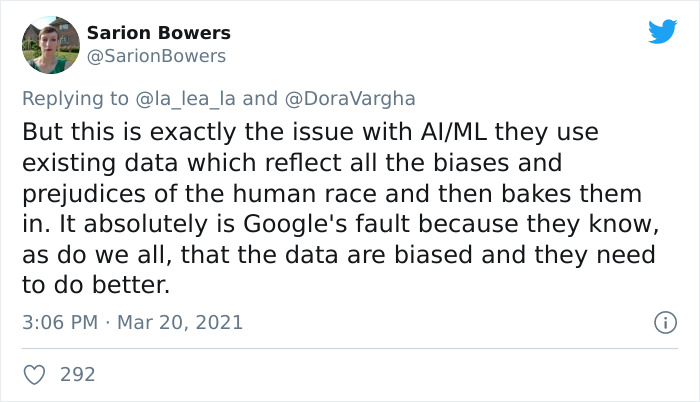
Image credits: SarionBowers
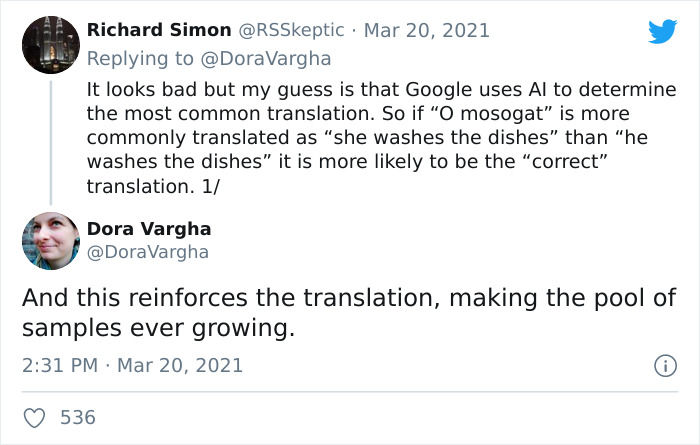
Image credits: DoraVargha
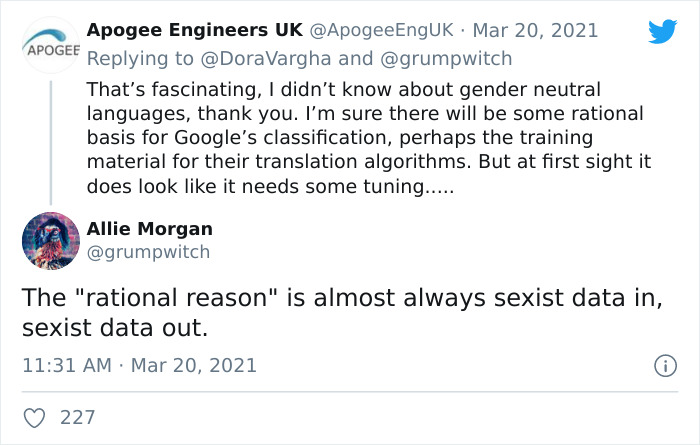
Image credits: grumpwitch

Image credits: feature_envy
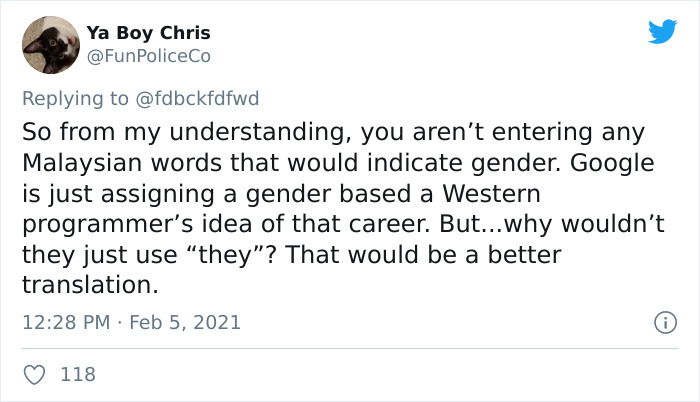
Image credits: FunPoliceCo
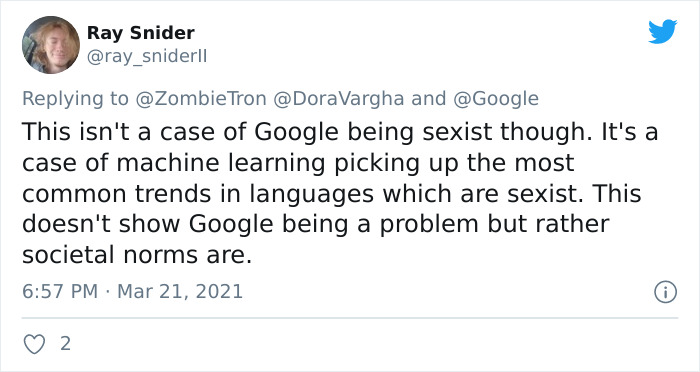
Image credits: ray_sniderII
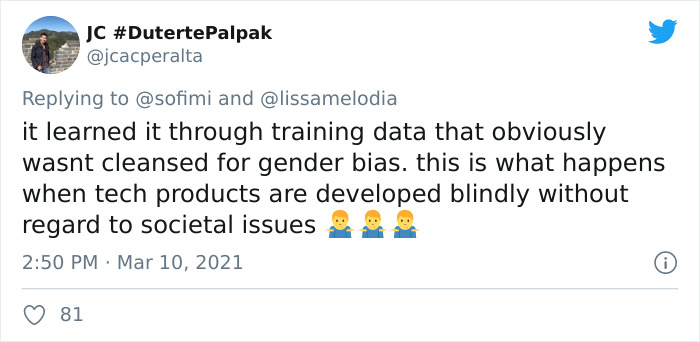
Image credits: jcacperalta

Image credits: EG198
Is Google Translate’s ‘sexism’ something that affects you, dear Pandas? What’s your opinion about some Twitter users calling out the system for assigning genders the way that real-life translators do? How do you think Google Translate could be improved? Should it be changed at all? Share your thoughts and feelings in the comment section below.
The post Twitter Users Call Out Google Translate For Being ‘Sexist,’ Post Proof first appeared on Bored Panda.
from Bored Panda https://ift.tt/3lA579C
Comments
Post a Comment
thank you